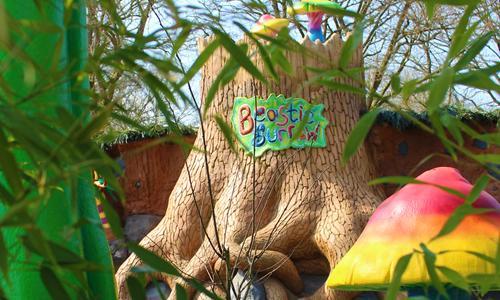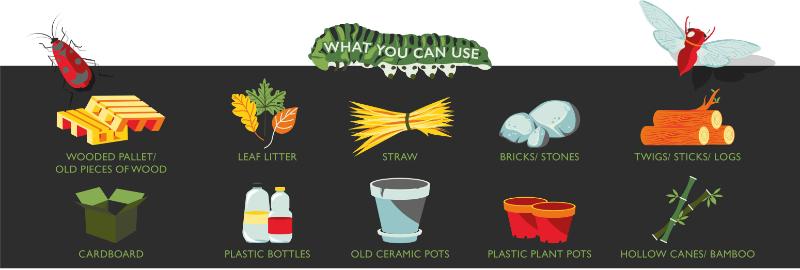
Our Animals
Paultons is home to all sorts of wonderful creatures. Come and marvel at the tropical birds, explore Wild Lands or watch one of our informative keeper talks.
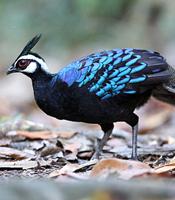
To provide our guests with positive educational and engaging experiences that will create and inspire lifelong respect for animals, and conservation of the natural world.
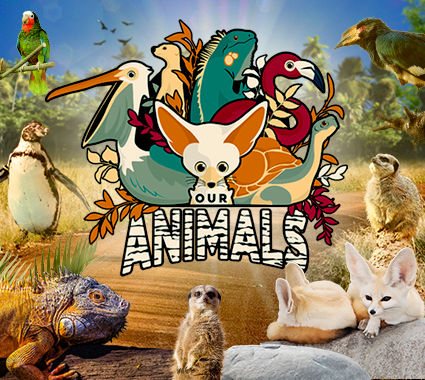
Conservation Goals
We adopt the conservation definition set out by the International Union for Conservation of Nature (IUCN) as “the protection, care, management and maintenance of ecosystems, habitats, wildlife species and populations, within or outside of their natural environments, in order to safeguard the natural conditions for their long-term permanence”.
Our direct contribution to conservation includes the donation of time, expertise, monies and materials within the following key areas of focus:
- Species management
- Field conservation & habitat management
- Education and engaging with people
1. Species management
Captive breeding programmes
Breeding programmes within zoos and aquariums can play a critical role in the recovery of threatened species. The scientific knowledge and practical experience of managing and maintaining thousands of animal species means that when working collaboratively, zoos offer enormous potential for wildlife conservation. Contributing to managed breeding programmes allows zoos to preserve the genetic diversity of threatened species in zoos to safeguard populations in the wild.
We are committed to support the maintenance of healthy ex-situ populations of managed species and to develop our Institutional Collection Plan to participate in further conservation breeding programmes.
We support and encourage our staff to develop their knowledge of skills by attending conferences and workshops that will enable a greater contribution to successful conservation breeding programmes.
Animal records
Our animal keepers record lots of information every day including animal behaviours, enrichment, and training. Our records are maintained on ZIMS (Zoological Information Management Software) which is the world’s most comprehensive source of information on animals and their environments for zoos and related organisations. This sophisticated system of record keeping facilitates collaboration between zoos in the collection and sharing of information to improve animal care and welfare, and is vital to the success of regional and global breeding programmes.
2. Field conservation & habitat management
Protecting wildlife globally
We provide financial assistance to conservation and educational programmes in several countries around the world, with annual donations to the following conservation charities:
Sphenisco
Humboldt penguins on the coasts of Chile and Peru are threatened by overfishing, climate change, direct hunting, guano mining, egg collection, and marine pollution. Sphenisco monitor and protect wild populations and breeding colonies of Humboldt penguins, and campaign for the prohibition of fishing with gill nets and dynamite, and to create marine protection areas. They collaborate with local communities in areas of environmental education and raise awareness of global threats to penguin species in partnership with zoological associations and establishments.
Sahara Conservation
Sahara Conservation exists to conserve the wildlife, habitats and people of the Sahara and Sahelian grasslands. For the past two decades Sahara Conservation has worked to protect the last remnant populations of critically endangered species including the addax and the dama gazelle, and in more recent years pivoted to large-scale rewilding through translocations and reintroductions. Today, over five hundred scimitar-horned oryx roam free across the grasslands of central Chad’s Ouadi Rimé- Ouadi Achim Game Reserve, after being extinct in the wild for nearly thirty years. Alongside them are addax (also reintroduced in Chad), dama gazelles, North African ostrich, and many thousands of dorcas gazelles.
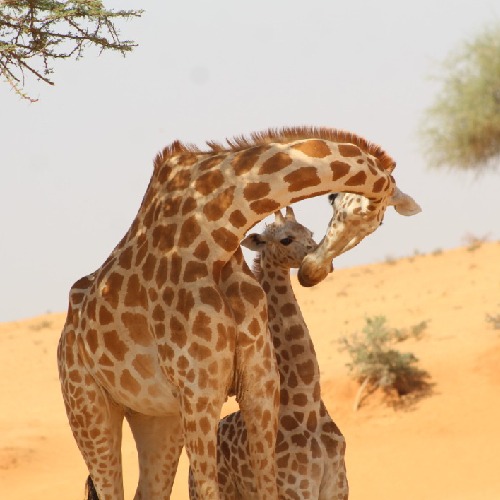
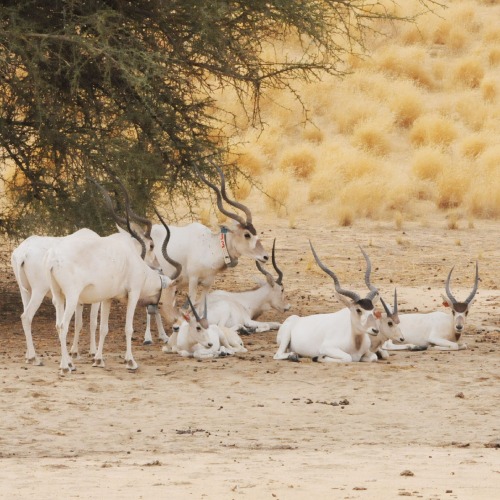
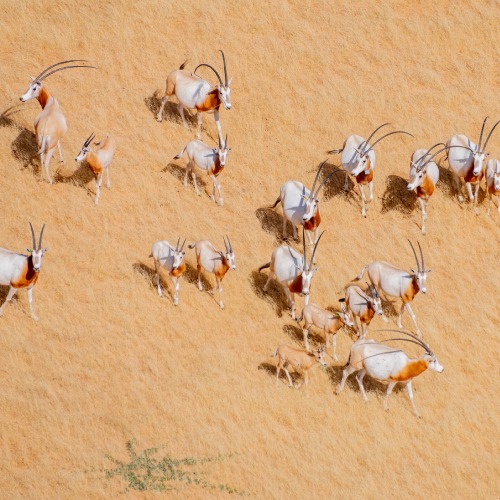
https://saharaconservation.org/
Paultons Park also collects public donations on behalf of the following charities:
- Sphenisco (conservation of Humboldt penguins)
- World Pheasant Association (committed to the conservation of Galliformes and the habitats they depend on)
- World Parrot trust (protecting wild parrot populations and improving captive parrot care)
We will monitor and evaluate the projects we support on a regular basis, to ensure we are delivering for wildlife.
Conservation partners
Paultons Park is committed to being actively involved in the protection of wild animals and their natural habitats, and we will enable our staff to add value to in-situ conservation of wild populations through direct contribution of time and expertise.
New Forest Cicada
In 2023 Paultons Park became a project partner of The Species Recovery Trust’s New Forest Cicada project. The Species Recovery Trust is committed to preventing the loss of some of the rarest plant, insect, and animal species in the UK.
The New Forest Cicada has always had a limited distribution within the UK, being found only in the New Forest, Hampshire. There are no confirmed sightings of the species since the early 1990s, despite extensive searches during the period 1996-2014.
The New Forest Cicada project involves habitat surveys to find suitable reintroduction sites and the translocation of cicadas from Europe. Paultons Park are leading on the captive breeding element of the project and will provide the care and husbandry for the cicadas whilst they are in captivity and we will monitor and record their health and behaviour.
https://www.speciesrecoverytrust.org.uk/new-forest-cicada
Conservation at Paultons Park
Our site supports many habitats, including important New Forest freshwater wetlands, which support a wide variety of wildlife. We are committed to conserving UK native wildlife and habitats on our site and beyond and manage our land with biodiversity in mind.
There are over one hundred acres of woodland that provides a haven for numerous wild plants and animals. The 10-acre lake is home to many species of insect and bird and is a common stop off point for birds on migration. The Cadnam river running through the site supports both otters and sea trout, and a sea trout and eel ladder installed on a weir near the watermill facilitates safe passage for both species further upstream. We encourage local wildlife by providing wildlife-friendly areas such as log piles, ‘bug hotels’, and nest boxes for birds and bats.
We aim to support local native species and habitat recovery programmes where appropriate, working with our local Wildlife Trusts and other UK conservation organisations.
Himalayan balsam
For several years Paultons Park has provided access to the Hampshire & Isle of Wight Wildlife Trust to help stop the spread of the invasive non-native Himalayan balsam, which is invading riverbanks in the New Forest and threatening our native wildlife and ecosystems.
Planting hedgerow
Volunteers from CPRE Hampshire and members of Paultons Parks grounds team have planted over 150 metres of hedgerow as part of a projects to connect the South Downs and New Forest national parks with a green corridor of interconnected hedgerow.
Conservation research
Zoos and aquariums provide a unique opportunity to collect data needed to protect their counterparts in the wild. Often these data cannot be obtained by research efforts in natural habitats due to prohibitive costs, accessibility to the animals and their environment, and the behaviour of the animals themselves.
Zoo staff are encouraged to develop research priorities that directly impact animal welfare at Paultons Park. We aim to expand our efforts to collaborate with universities and other organisations to facilitate and conduct research projects on site which have a conservation output. Working with these conservation partners, we aim to apply evidence-based zoo research to enhance conservation outcomes in the wild and promote more wildlife friendly behaviours to our guests and supporters.
3. Education and engaging with people
As outlined in our zoo mission we aim to inspire and connect people to the natural world. As nearly all threats faced by wildlife are linked to human behaviours and actions, we aim to educate and encourage behaviour change that may reduce species threats, and better facilitate our coexistence with wildlife. To achieve this we aim to provide an educational programme that caters for all visiting guests and school groups.
Our informal conservation education aims to increase public knowledge of the threats to wildlife and importance of biodiversity. Our interpretation includes conservation messaging, and the delivery of our zoo talks ensures that audiences are engaging with conservation education and encouraged to adopt environmentally responsible behaviours. Information about supported projects are available to guests via signage, educational sessions and zoo talks, and an online presence. We will continue to develop onsite interpretation for our guests and digital information for our supporters to raise awareness of conservation and Paultons Parks’ conservation outputs.
Our intent is to provide a stimulating and fun formal education curriculum by making educational resources available to schools and teachers, and by providing sessions on-site that are grouped by Key Stage and linked to the National Curriculum. Our staff also visit local schools to engage about zoos and their role, and zookeeping as a career. We will determine key metrics to help us continually monitor and measure the success of our educational programme.
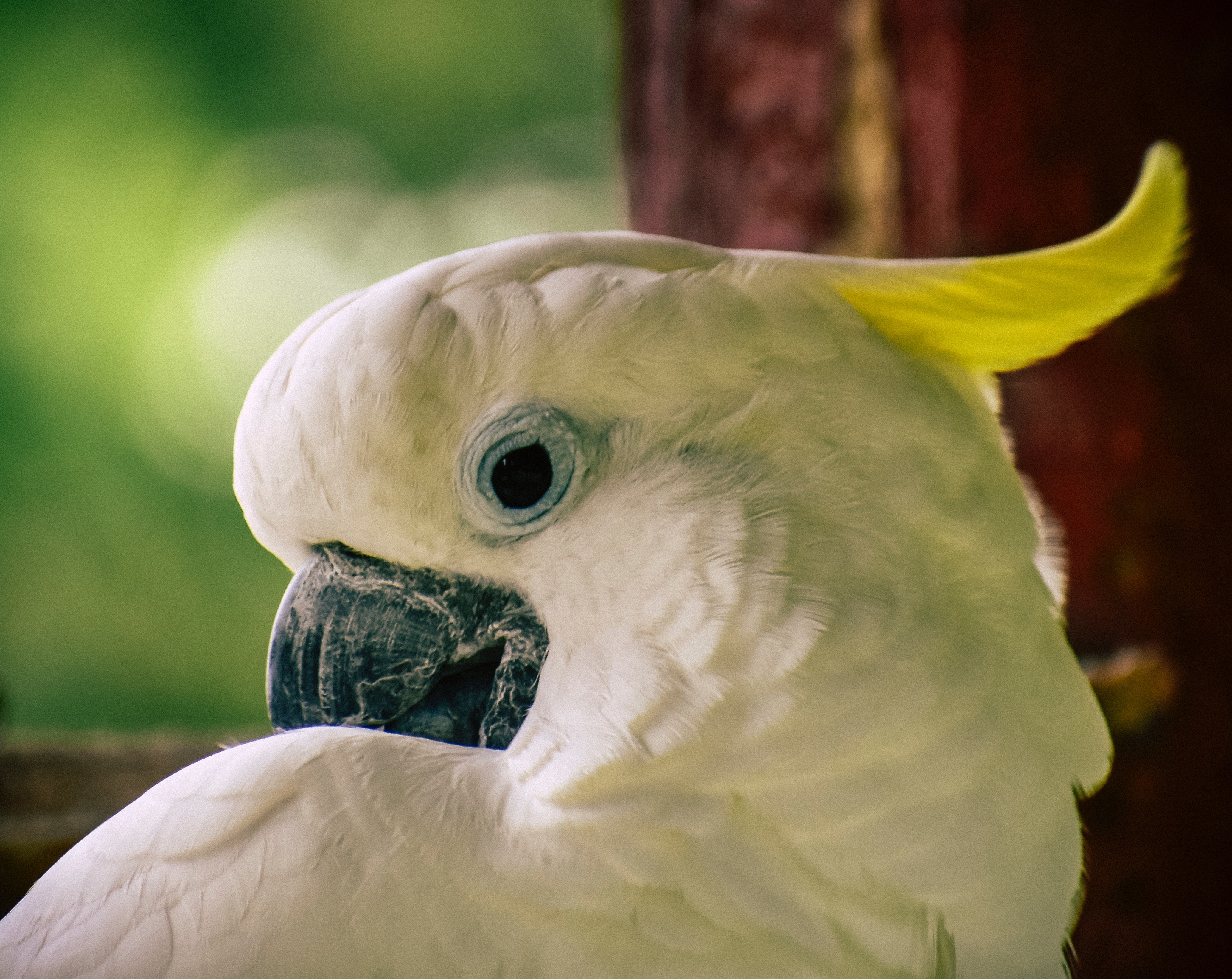
All our animals are offered a variety of different enrichment. This is important as it helps keeps them mentally stimulated and encourages natural behaviours.
Our animal keepers also spend time training some of the species we have at the park. This improves animal welfare and can make things like health checks much easier.
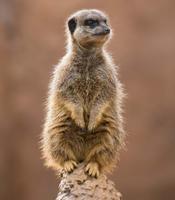
Education
Educating our visitors about wildlife, their habitat, related conservation issues and the ways in which we can contribute to their preservation is extremely important to us. We offer daily Humboldt Penguin and Meerkat talks, giving visitors the chance to learn about these amazing species and see them up close and personal.
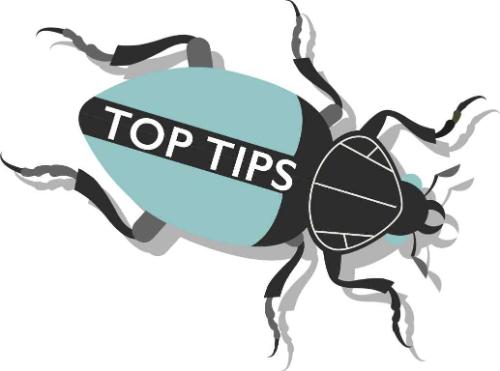
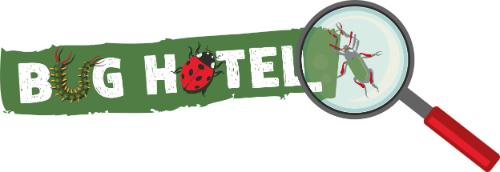
Here at Paultons Park we have many wildlife-rich zones, including large areas of precious New Forest wet woodland habitat that contains lots of native invertebrates including beetles, butterflies, ladybirds, woodlice, snails, and millipedes. You may have seen two large bug hotels located on our discovery trail.
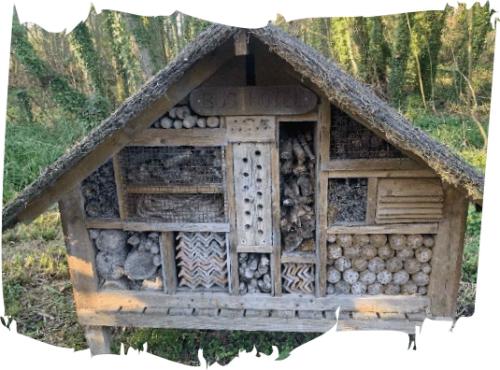
Bugs are essential to maintain balanced ecosystems; they clean up the environment, pollinate flowers, create and maintain soil, and provide food for birds, fish and other animals.
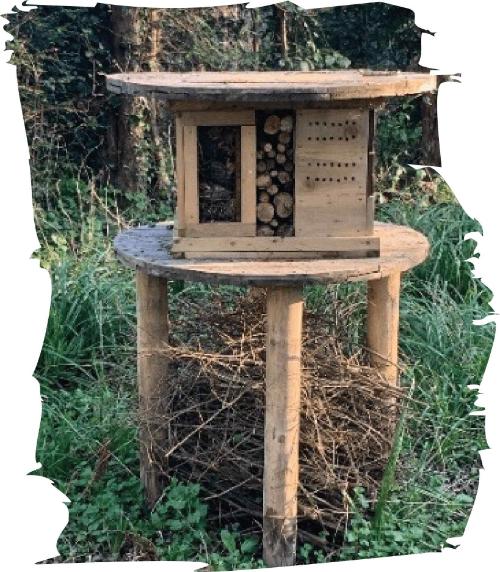
You can help bugs and minibeasts in your gardens by building them their very own bug hotel! They will find shelter in all types of small cracks and crevices but sometimes they need a little extra help. Using upcycled materials is a really easy way to do this.
(Tap on the image above to enlarge)
TOP TIPS!
- Choose an appropriate site that is level. The material should be strong and durable.
- Old pallets can be a good start point, as they have ready-made gaps to add other materials to it.
- You can build several layers depending on how much material you have.
- Always remember to add a roof to the structure to keep everything dry!
- They can be as small as you like. Even a tiny hotel will attract plenty of wildlife.
- Log/stick piles can be another great way to attract wildlife to your garden.
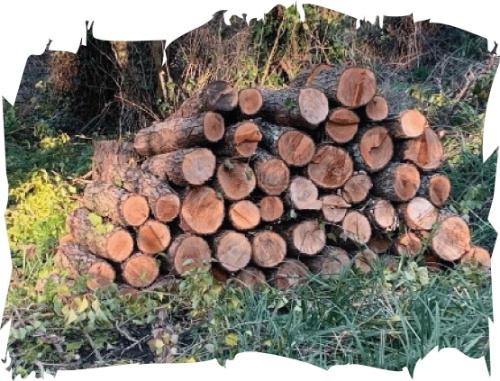
- You can also download the Build a Bug Hotel activity sheet!
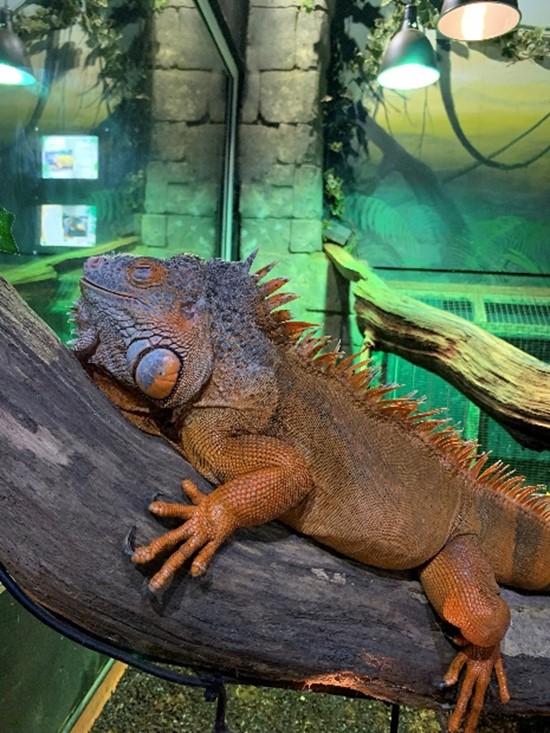
PLACEMENTS WITHIN OUR ZOO TEAM!
Thank you for showing an interest in work experience. There are a few things you need to think about before you apply.
- Working with our animals is a very popular choice for work experience and we will be unable to accommodate everybody that applies.
- You must be aged 17 or over and be working towards an animal related qualification.
- Working in a zoo can be very physically demanding so a level of fitness is important.
- You will be expected to attend an interview before being successful in your application.
WHAT YOU WILL BE DOING
- Working alongside our experienced animal keepers you will be carrying out general animal husbandry tasks including cleaning enclosures, providing fresh food and water, food preparation and offering enrichment.
- General tasks including washing up, sweeping, and mopping.
- Please be aware that most of your day will be spent cleaning up after the animals and not interacting with them.
HOW TO APPLY
- Please email recruitment@paultons.co.uk for details of how to apply.


